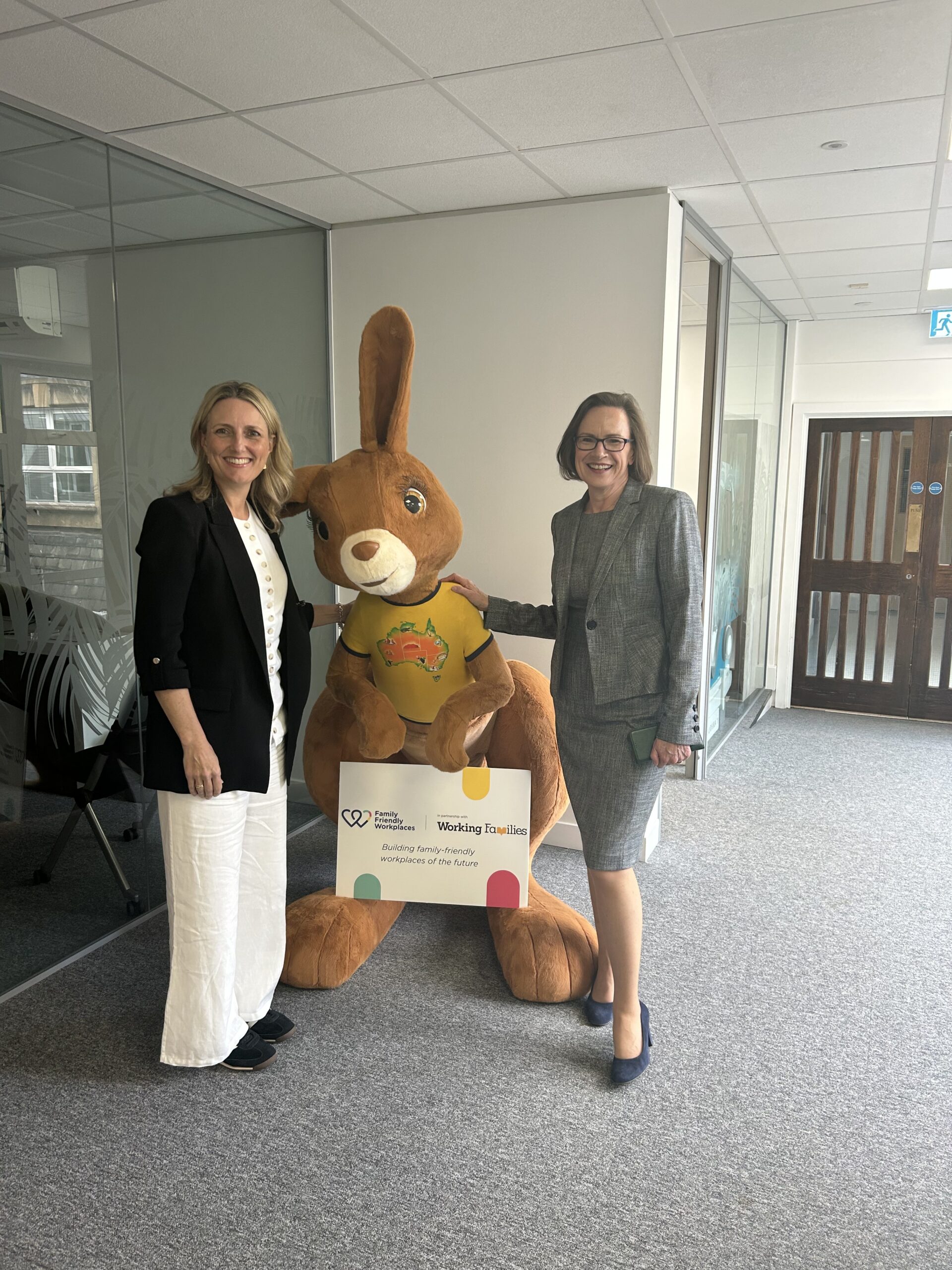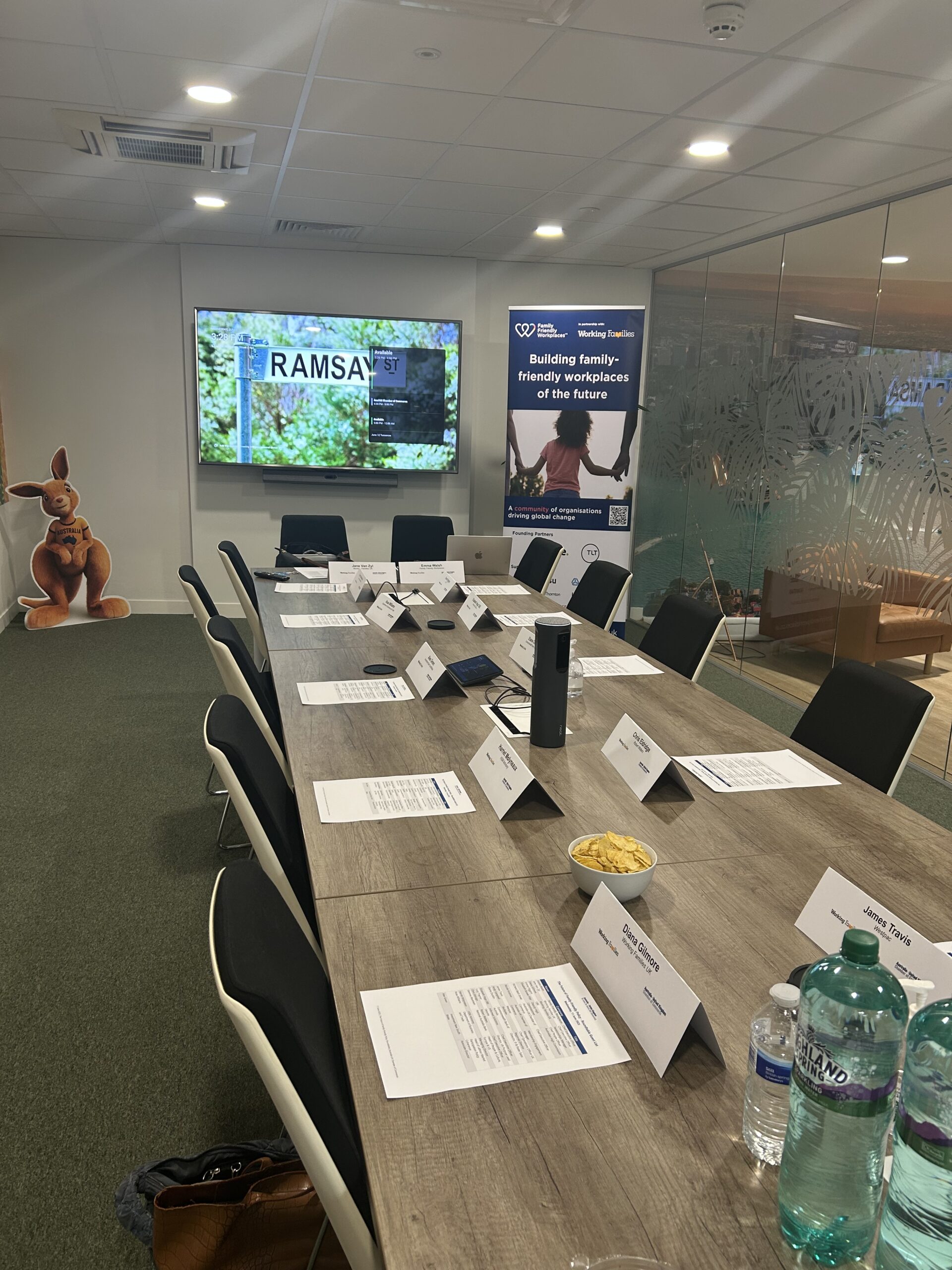As the world of work continues to evolve, so too must our understanding of how work and care intersect. At the recent event hosted by the Australian-UK Chamber of Commerce, The Future of Work + Family Policy, business leaders, government representatives and advocacy organisations gathered at Australia House in London to examine the path forward.
Together, we explored how to design and embed family-inclusive policies that support both people and economies and why doing so is no longer optional, but imperative.

Why Work + Family Policy Must Be Reimagined
In both Australia and the UK, outdated policies and cultural norms continue to limit workforce participation, especially for women and caregivers. In Australia, caring for children remains the biggest barrier to female labour force participation. Childcare costs rank among the highest in the OECD, with families spending an average of 16% of household income, almost double the OECD average.
Moreover, Australia’s paid parental leave, although improved and gender-neutral, is still currently limited to 22 weeks at minimum wage, far behind the OECD average of 52 weeks. In the UK, mothers receive 39 weeks of leave, but fathers and partners are typically limited to just two weeks, often unpaid or underpaid.
Such disparities have a measurable economic and social impact. From stress and burnout to workforce attrition and gender pay gaps, it’s clear: the system isn’t working.
The Business Case: Why Employers Must Lead
One core message emerged from the event: family-friendly workplaces are good for business. Data from the 2024 National Working Families Report shows that:
- 74% of women and 57% of men report heightened stress in managing work and care.
- 56% say it’s more acceptable for women than men to use family-friendly work options.
- 50% of employees worry their commitment is questioned when they use flexible arrangements.

In response, employers like QBE, Deloitte and Commonwealth Bank are stepping up. They’ve introduced progressive policies such as equal, gender-neutral parental leave, which are translating into better staff retention, engagement, and well-being.
Deloitte UK, for instance, now offers 26 weeks of fully paid parental leave for all parents birthing, adopting or otherwise. Within just a few months of implementation, the policy is already transforming workplace culture, normalising flexibility and shared caregiving. Fathers are reporting a deeper understanding of the mental load typically carried by mothers, a subtle but powerful cultural shift.
From Policy to Practice: The Role of Certification
At the heart of the conversation was the Family Friendly Workplaces initiative, an international certification program founded by Parents At Work and UNICEF Australia. Originally launched in Australia in 2021, it has now expanded to the UK and is helping employers benchmark, evaluate, and improve their work and family policies.
Certification is based on Global best practice Work + Family Standards underpinned by a social impact framework that allows employers to measure their social impact over time. It measures progress in five pillars:
- Flexible Work
- Parental Leave
- Leadership
- Family Wellbeing
- Family Care
Organisations certified through the program report:
- 7 percentage points higher job satisfaction and engagement.
- 9 percentage points higher likelihood of employees remaining with their employer.
The initiative is more than a badge; it is a social impact tool, designed to provide measurable outcomes over time. Through benchmarking and a guided action plan, certified organisations can demonstrate tangible progress toward gender equity and workforce sustainability.
Structural Change Requires Collective Will
As the UK and Australian governments seek to drive workforce participation and economic resilience, they must work alongside businesses and the community. Policymakers attending the event noted the importance of sharing best practices across sectors, including the public sector, which often already implements strong family policies.
Participants highlighted that hybrid work models must not erode gains made during the pandemic. Mandates pushing workers back into offices risk disadvantaging caregivers and undoing progress on flexible work cultures. Instead, the focus should be autonomy, trust, and inclusive leadership.
Looking Ahead: From Dialogue to Action
There is an acknowledgement that meaningful cultural change around work + family policy takes decades, but it starts with intention and accountability.
As Emma Walsh shared, “Investing in family-friendly workplace provisions is about building a future where families, communities, and our economies thrive together.”
Over 150 organisations are now certified as Family Friendly Workplaces, with over 1 million employees reached globally. The call to action is clear: if we want a sustainable, inclusive future, we must embed care into the culture and structure of work.
Be a family-friendly employer.
Join the movement. Set the standard. Be a workplace where families and futures thrive.

